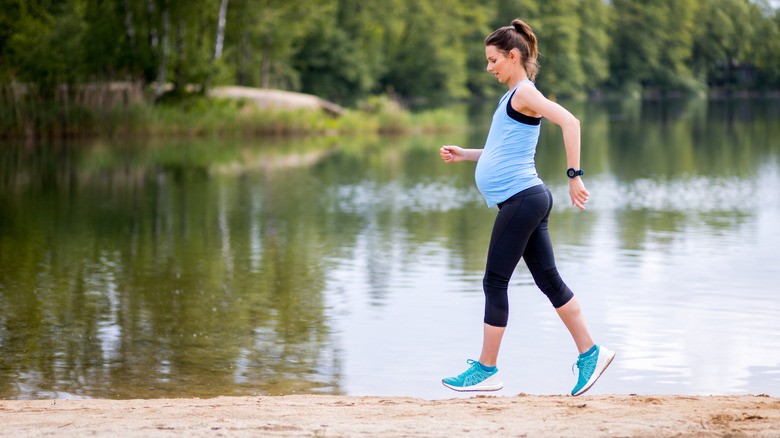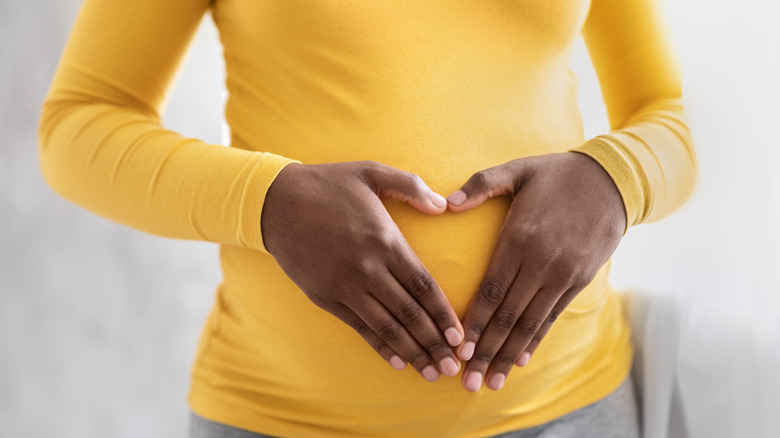Is It Safe To Run While Pregnant?
According to WebMD, pregnant women should aim for a minimum of 150 minutes of moderately intense exercise every week. As long as you're having a healthy, normal pregnancy and your doctor gives you the okay, it's safe to exercise while pregnant. Some of the benefits of exercising while pregnant include less weight gain, easier labor, and a lower risk of complications. Exercising while pregnant is also good for mom's mental well-being and baby's brain development.
If running is your exercise of choice, it's important to take extra precautions while pregnant. But first, running as an exercise during pregnancy is recommended only if you were a runner pre-pregnancy. One tip to make the activity more comfortable is to go up a size in running shoes to best protect your feet, ankles, and joints. You'll also want to wear a comfortable sports bra to account for the transformation your breasts are going through. Drink lots of water and aim for 8 to 12 cups per day. Lastly, be sure to listen to your body. This isn't the time to try to beat your personal record or push yourself to the brink. If your body is telling you to walk or take the day off, it's in your best and interest and the baby's to listen.
Risks of running when you're pregnant
One of the risks associated with running while pregnant is that you can get off balance (per WebMD). Your body's center of gravity changes due to the baby adding extra weight in the front. Your joints are also looser during pregnancy, so be careful on steep surfaces, uneven roads, and rough terrains. Pregnancy makes you more susceptible to aches and pains, particularly around your pelvis and abdomen. Pay attention to these sensations and take it easy if needed.
According to Baby Center, these risks are more or less prominent depending on the trimester you're in. During the first trimester, hydration and proper shoes and bra size are very important. You'll also want to wear loose-fitting clothing so you stay cool and protect your skin against melasma (a condition when your skin gets dark patches due to pregnancy) by wearing a hat and using SPF30. During the second trimester is when you're more at risk for a fall or experiencing joint aches and pain. This is also when you want to pay more attention to your running path. In the third trimester, be sure to slow down your pace, as running can cause contractions the closer you get to your due date.


